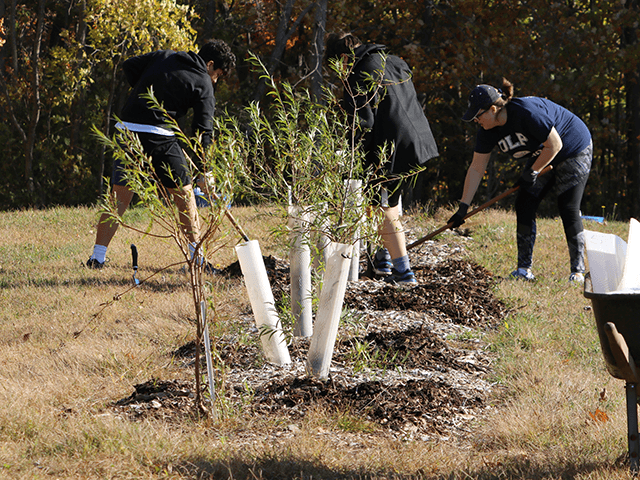
The Erie Benedictine Laudato Sí Platform Committee is working locally to keep alive the message of Pope Francis’ encyclical Laudato Sí, On Care for Our Common Home. We follow the direction set by the International Laudato Sí Action Platform as it works globally to keep this message of the encyclical before us. The vision: Every sector of the global church is, somehow, finding ways to lessen the climate crisis. All families, parishes, schools, health care, business, agriculture….are promoting and implementing Laudato Sí in their own local communities.
To assist individuals and groups in knowing how to think about responding to such a huge crisis the Platform developed seven goal areas:
- Response to the Cry of the Earth
- Response to the Cry of the Poor
- Ecological Economics
- Adoption of Sustainable Lifestyles
- Ecological Education
- Ecological Spirituality
- Community Resilience and Empowerment
We will consider each of these goals and explore ways to understand and respond to them. However, Laudato Sí offers a caution: “Our goal is not to amass information or to satisfy curiosity, but rather to become painfully aware, to dare to turn what is happening to the world into our own personal suffering and thus to discover what each of us can do about it.” (Paragraph #19)
With this caution in mind let’s look at the first goal: The Response to the Cry of the Earth.
According to the Laudato Sí Platform this is a call to protect our common home for the well being of all, as we equitably address the climate crisis, biodiversity loss, and ecological sustainability. Actions could include the adoption of renewable energies and energy sufficiency measures, achieving carbon neutrality, protecting biodiversity, promoting sustainable agriculture, and guaranteeing access to clean water for all.
Wow! What does all this mean? What do these terms mean? Let’s define some of them. We’ll consider four: Biodiversity; Ecological; Sustainability; Carbon neutral.
Biodiversity – refers to the variety of living species on Earth, including plants, animals, bacteria, and fungi. Laudato Sí invites us to consider: “Our insistence that each human being is an image of God should not make us overlook the fact that each creature has its own purpose. None is superfluous. The entire material universe speaks of God’s love, [God’s] boundless affection for us. Soil, water, mountains: everything is, as it were, a caress of God.” (#84)
Ecological – is concerned with the relation of living organisms to one another and to their physical surroundings. We find in Laudato Sí a reflection on this relationship as “universal communion”: “….as part of the universe, called into being by one [Creator], all of us are linked by unseen bonds and together form a kind of universal family, a sublime communion which fills us with a sacred, affectionate and humble respect…. (#89)
Sustainability – can be understood as a form of “intergenerational ethics”, according to James Meadowcroft, professor of political science and public policy and administration at Carleton University, Ottawa. That is, environmental and economic actions taken by present persons do not diminish the quality of life in all its dimensions in the future.
One way to understand this and some of its implications can be found in #144 of the encyclical: “A consumerist vision of human beings, encouraged by the mechanisms of today’s globalized economy, has a leveling effect on cultures, diminishing the immense variety which is the heritage of all humanity…There is a need to respect the rights of peoples and cultures, and to appreciate that the development of a social group presupposes an historical process which takes place within a cultural context and demands the constant and active involvement of local people from within their proper culture…”
Carbon neutral – adding no additional carbon dioxide to the atmosphere. Trees remove the carbon dioxide. Having an understanding of terms will enable us to comprehend the importance of the encyclical. This may lead us to adopt actions that will lessen the climate crisis.
What can we do? This month we ask you to consider:
- Take one of the terms in the first goal. Get to know it. Allow it to change you.
- As you think of your garden: Put in a plant or vegetable that will attract butterflies or bees to pollinate.
- Think of planting a tree that is native to your local area.
- Turn off unneeded lights.
